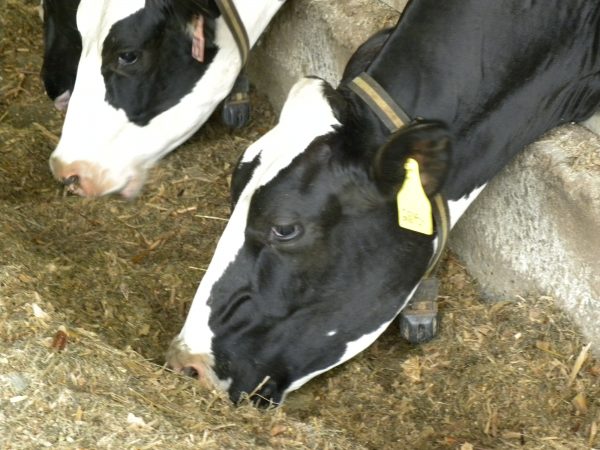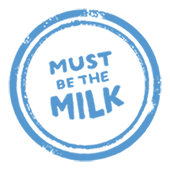Got…Beer?
You might be wondering what milk and beer have in common, but dairy farms and breweries actually have a unique relationship that helps eliminate waste and contributes to a sustainable food system.
About 85 percent of the byproducts from beer production come in the form of spent grains, or the leftovers that typically don’t have another use. So what do breweries do with that material? Throw it away? Your local dairy cow hopes not!
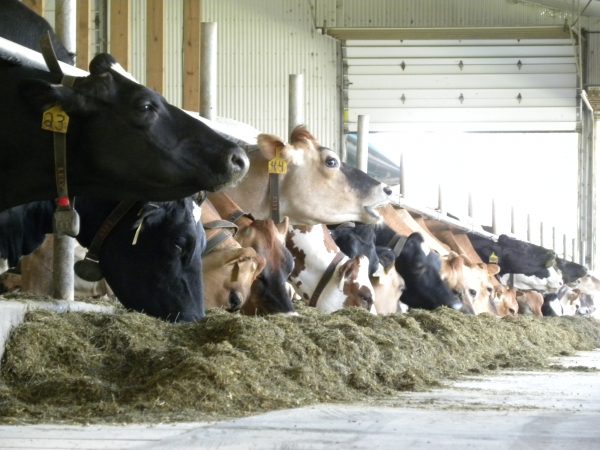
The Ultimate Recyclers
There are about 1,200 dairy farms throughout Connecticut, Massachusetts, New Hampshire, Rhode Island, Maine and Vermont. With those farms home to hundreds and thousands of cows, there are a lot of mouths to feed!
That’s where local breweries come in.
Massachusett’s RiverWalk Brewing Co., Vermont’s Otter Creek Brewery Company and New Hampshire’s Elm City Brewing Co. are just a few examples of breweries in our region who send their spent grains to area dairy farms. Because cows are ruminants (four distinct compartments in the stomach to digest food), they are the ultimate recyclers!
And it’s not just brewer’s grains that dairy cows like to eat; from citrus pulp, to bakery leftovers, dairy cows use many of our byproducts to fuel their milk production.
Melissa Carabeau is a nutritionist for Poulin Grain. A 2013 Animal Science graduate from the University of Vermont, it’s her job to create a balanced diet for thousands of dairy cows in Vermont. She visits local farms weekly to check up on the herds. Carabeau says healthy cows produce delicious milk, and that for some dairy cows across the nation, 10 to 25 percent of their diet comes from human food byproducts. Nationwide more then 34 million tons of food leftovers are fed to farm animals, and kept out of landfills, a practice beneficial to our food system and the environment!
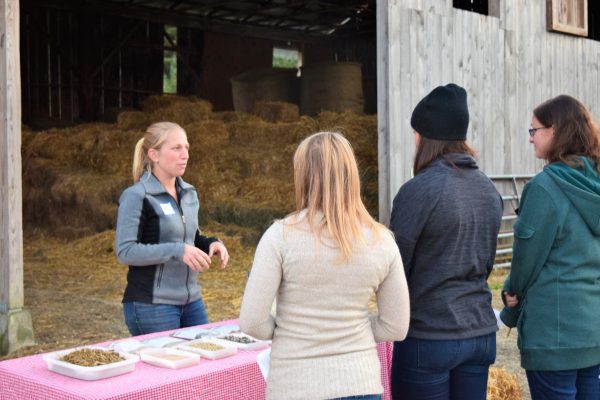
A Cow’s Diet
Nutrition is an important part of the dairy industry. Farmers and nutritionists like Carabeau work to find the perfect balance of energy, fat, protein, and carbohydrates. And that balance can differ from cow to cow. It’s a science based on the cow’s breed, their age, even how long it’s been since they had a calf.
Like us, dairy cows need to be comfortable and healthy – the keys to efficient production and quality milk, both important goals for dairy farmers.
So what else do dairy cows eat?
A milking cow eats about 100 pounds of feed each day. Feed is a mixture of hay, grain, silage and proteins, plus other vitamins and minerals. Mixing in other materials like the spent brewers’ and distillers’ grains or citrus pulp can help provide some of those vitamins and minerals.
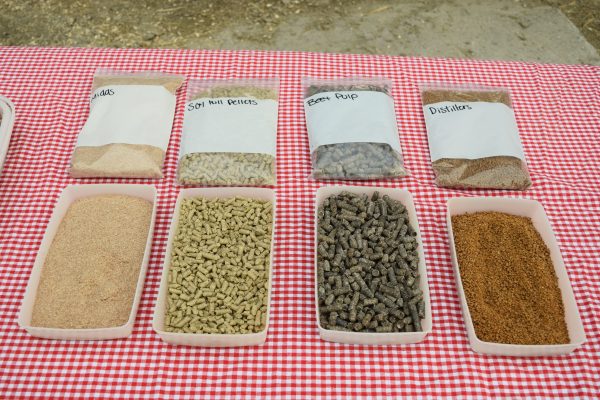
Nutrition experts can take those byproducts and identify the nutritional content found within. The byproducts are added to farm-grown feeds to make up for deficiencies, or to boost nutrient levels. Carabeau explains if cows are short on protein, she knows to add soybean meal, or distiller’s grains to offset.
The ingredients for a typical dairy cow diet includes a mixture of 54 percent silage, that’s the whole corn plant chopped up. Haylage, or grass and alfalfa plants, make up another 17 percent of a Vermont dairy cow’s diet, and are a wonderful source of fiber and are high in protein. Corn silage and haylage grow readily in New England, which is why dairy farmers and nutritionists look to these local ingredients first when building a cow’s diet.
Human leftovers, like brewers’ grains and citrus pulp make up the next largest portion of the cow’s diet at 13 percent. Grains make up another 12 percent including soybean meal or corn meal, which boost the energy and protein in a cow’s diet. Vitamins, minerals and probiotics round-out a cow’s diet, all helping to keep those ladies healthy!
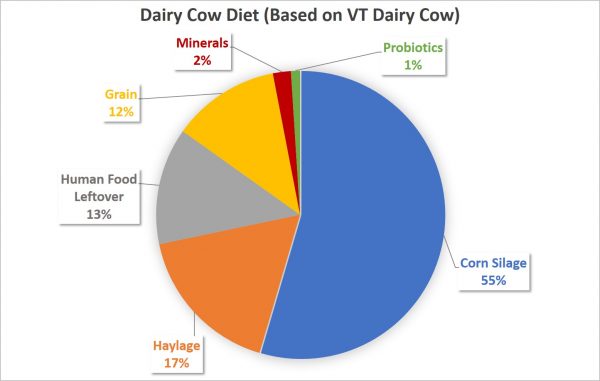
Chewing Their Cud
If you’ve ever visited a dairy farm or seen a cow, they’re almost always chewing. That’s because of their four stomach compartments – an animal classification known as ruminants. Cows must chew their food more than once to fully digest. Chewing cud is a sign of good nutrition and healthy cows will do so up to eight hours a day!
Probiotics
As you read above, probiotics are becoming a more popular tool in the creation of healthy diets for dairy cows. Nutritionists and dairy farmers have identified the importance of introducing “good” bacteria into cows’ stomachs. Probiotics are live bacteria and yeasts that are good for our own health, especially the digestive system. Same concepts apply to dairy cows. The “good” bacteria boosts the immune system. Antibiotic are used sparingly on dairy farms – a cow will only receive antibiotics is she gets sick, and her milk will be thrown away until the antibiotics clear her system. That has always been the case, but these days farmers are turning to probiotic products to keep cows even healthier in the first place, further reducing a need to use antibiotics.
Tip a Glass to your Local Dairy Cow
For Carabeau, the weekly visits to the farm making sure the cows nutrition is top-notch are her ways of helping the dairy industry survive and thrive. She jokes that sometimes she thinks dairy cows eat better than we do! She explains the goals for every dairy industry expert are to help make farms financially, socially, and environmentally sustainable.
Cows are the ultimate recyclers. They’re able to use the products we’d throw away, and they give us back products we can’t produce, but enjoy every day. So the next time you crack open a cold one, or pour yourself a glass of orange juice, give a nod to your local dairy cows!
